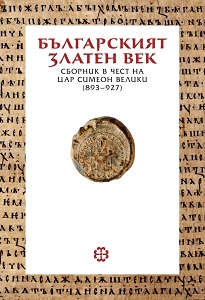
We kindly inform you that, as long as the subject affiliation of our 300.000+ articles is in progress, you might get unsufficient or no results on your third level or second level search. In this case, please broaden your search criteria.





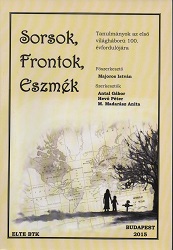
As to my personal project plan for the coming six years on the issue of present concern, I shall in the following present my hypothesis––a hypothesis which is about to take shape, while I am looking up for a moment from behind the heaps of books taken from my bookshelf. The reason why I shall submit my hypothesis at this stage is that I hope that you might prompt me––by expressing your appreciation or doubts to what you read––to advancing new perspectives and new ideas.
More...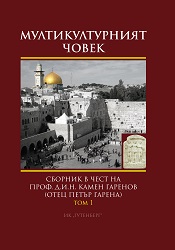
The study focuses on the problem of 'master-slave' relations in Modern Times. Analysing the ideology of slave ownership in the United States, the author puts forward the arguments about the continuity of the 'master' attitude in the conditions of the liberal democratic West.
More...
Eastern Roumelia received its fundamental law drafted by a specially European commission. It is quite a detailed document providing for all aspects of life of the Roumeli citizens. The Organic Statute of Eastern Roumelia defined the new political formation in the Balkans as a state of modern (for that time) bourgeois-liberal type. It had all the features of and independant state: its own government, a representative authority elected by the people and a national army. The sovereignty of the sultan was included in the Statute, but thanks to the efforts of Eastern Roumeli political figures, it soon became nominal, without any serious power in the region. Unlike the neighboring countries (the Ottoman Empire, the Principality of Bulgaria, Serbia, Greece and Romania) there was no legalized and preferred religion in Eastern Roumelia. All religious issues were placed in the hands of the religious communities and the state did not involve itself with them. The only condition was that they should not violate any of the laws valid to the region.
More...
The life and work of the Turkish journalist and publicist M. N. Deliorman, packed as they are with plenty of valuable information about the history of the Turkish community and the political history of Bulgaria, deserve to be reached. After presenting the most important points in the biography of M. N. Deliorman, this paper discusses in great detail his reports from Bulgaria, which he sent as a correspondent in the course of nearly two months directly after the coup on September 9, 1944.
More...
The Macedonian charity, cultural and educational fraternities in Bulgaria were established by the refugees from Macedonia who came to this country after Kresna-Razlog Uprising in 1878, the Illinden (St. Elijah's Day) Uprising in 1903, the Second Balkan War in 1913 and World War I. They originated on a purely fraternity basis with the aim of charity work, mutual support and preservation of family roots. The number of fraternities established by the refugees grew with their number in Bulgaria, running parallel to and enrichment of the forms of organization: clubs emerged, ephorie (boards of trustees), cooperatives, cultural and educational scocieties, orphanages, including banks such as the Macedonian Cooperative Bank and the Macedonian Popular Bank, and the Macedonian Research Institute among others. At the beginning of May 1934 there were about 540 Macedonian refugee structures established all acros Bulgaria with 50634 regularly reported members. The activity of the Macedonian fraternities was officially terminated with Decree № 130 of 1951 of the Presidium of the National Assembly. A special circular letter of the Ministry of Justice was issued whereby the company cases of the refugee organization were transferred to the regional and district courts where single-member panels presided. The decree of the Presidium transferred the entire property of the Macedonian charity fraternities and other Macedonian organisations to the newly-established Gotse Delchev Society in Sofia.
More...
Civilizational accumulations, the deformations of various nature and the need to rationalize them give rise to contradictory opinions about identical processes and events. Several Balkan authors are presented, as well as their views and methods and models they use. The Croatian DubravkaUgrešić and her painful nostalgia for the disintegrated Yugoslavia in 'The culture of Lies'; Turkish historian Fikret Adanir with his work on the Macedonian Question 'Die makedonische Frage. Ihre Enstehung und Endwicklung bis 1909', in which the leitmotif of the study is the principle of the Ottoman 'milliyet' system; as well as the book of Greek author Anastasia Karakasidou 'Fields of Wheat, Hills of Blood: Passages to Nationhood in Greek Macedonia, 1870-1990', first published in the United States. It speaks of the Bulgarians in Aegean Macedonia, as well as the fate of the Macedonian citizen Vladimir Paunovski and his report revealing the ideology of Yugoslavism and Titovism, which generated Macedonism and the Macedonian language. The paper also reveals the connection between their views and their attitude towards the doctrinal framework of Benedict Anderson's fundamental for modern anthropology work, 'Imagined Communities'.
More...
With the formation of Islam as a religion in the 7th century, initially spread over the Arabian Peninsula, Christianitu faces a new challenge, which the Christian theologians are not entirely prepared to meet since this "doctrine" can not be "seen" through the eyes of the Antiquity. Saint John of Damascus and Theodore Abu Qurrah represent the early polemics with Islam. Their answer to the call of the minaret reveals two important aspects of the Christian polemics with Islam: through knowledge of the Qur'an as a text and highly competent polemical presence. These two features, in one way or another, were later recognized, assembled and followed by all Christian polemicists in the East and West.
More...
In the past years a lot of lead amulets have been found in Bulgaria and some of them enchantments on them against Nejit, who are believed to be a humanoid spirit in the folklore. The oldest amulet found is dated from 10-11th century. This paper is focused on an amulet that has been found recently near the town of Kyrdjali. The uniqueness of this amulet is that a mix of cyrillic and glagolic letters have been written on it. Two copies of the text exist that were analysed and described once by German and second time by Bulgarian linguists. The interval between the two examinations was 10 years. In this article a comparison between the Bulgarian and the German reconstruction of the text is being made as the two texts are evaluated in the context of the newest information.
More...
The Old Bulgarian Blessing of the Waters on the Eve of Epiphany from X-XI centuries is the earliest Slavic copy of that work, giving an account of the very old routine of the Holy Sanctification of the Water, which is performed nowadays on the eve of Epiphany (January 6 - new stile). During the examination of the later Slavic copies of this Convention from the XV-XVII centuries, were discovered two unknown short redactions - one of them from the XVth c. - in Russia, Serbian, and Bulgarian Books of divine services and Prayer-books, and the other - from the year 1782 (in a Church Slavic prayer-book from Hilandar monastery, in Mount Athos). In the article, for the first time, is published the text of the short redaction of the Blessing of the Water on the Eve of Epiphany, from the above mentioned XVIIIth c. Preayer-book.
More...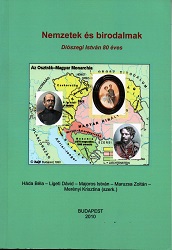
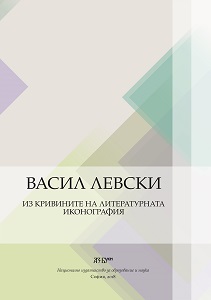
The text attempts to reconstruct the beginning of the Bulgarian heroic epic. The author believes that the structure of the author‘s epic was invented by Hristo Botev and was later extended by Ivan Vazov. Vasil Levski‘s figure is met in both poets, but while Vazov writes the live of the Deacon like a saint, Botev carries out his literary canonization according to all ritual procedures and turns it into the Bulgarian Jesus.
More...
The paper discusses the models of memory, which the cycle of odes “Epopee of the Forgotten” by the Bulgarian poet Ivan Vazov and the cycle “Rhapsodies of the Bulgarian Gusle-player” by the Slovenian poet Anton Ashkertz offer to the respective national audiences. The analysis bounces off the provocation of the mutual “dislike” of Ashkertz and Vazov so as to project through the textual juxtaposition of the shared by the two poets literary icon of “Vasil Levski” the different functionality of their means of expression
More...
The year 1898 marked the first jubilee of Vasil Levski – 25 years since his hanging. The dynamics of political processes in liberated Bulgaria at the time present a rather interesting and particularly complex picture against the background of which this event unfolded. The stereotype of jubilee celebrations was yet to consolidate and this particular occasion – the anniversary since the death of the Apostle of freedom – makes visible the deep political contradictions inherited from previous historical realities. The manifestations of these contradictions can be seen in the press in 1898.
More...
The paper examines for the first time the initial reception of Vasil Levski’s image and significance in the British daily and weekly press in the period 1867 – 1908. Commencing with a curious case of the first appearance of his name in the British press, the paper focusses further on press contributions reporting on a series of Bulgarian state ceremonies and commemorative events that, on the one hand, function as rituals of state iconisation of the Bulgarian national hero Vasil Levski and, on the other hand, exploit his high status for political purposes. In its final part the paper presents the first critical voices in the British press against the political instrumentalisation of Vasil Levski’s image in Bulgaria.
More...
The essay attempts to juxtapose and analyze the divergent and often contradictory stories accompanying Vasil Kunchev’s path into and out of monasticism, his subsequent religiosity, and his Christian consciousness. It outlines the image of a man experiencing doubts and inner conflicts but preserving his faith. His letters and proclamations clearly reveal how the knowledge of Christianity he had received and his life of faith shaped his revolutionary philosophy.
More...